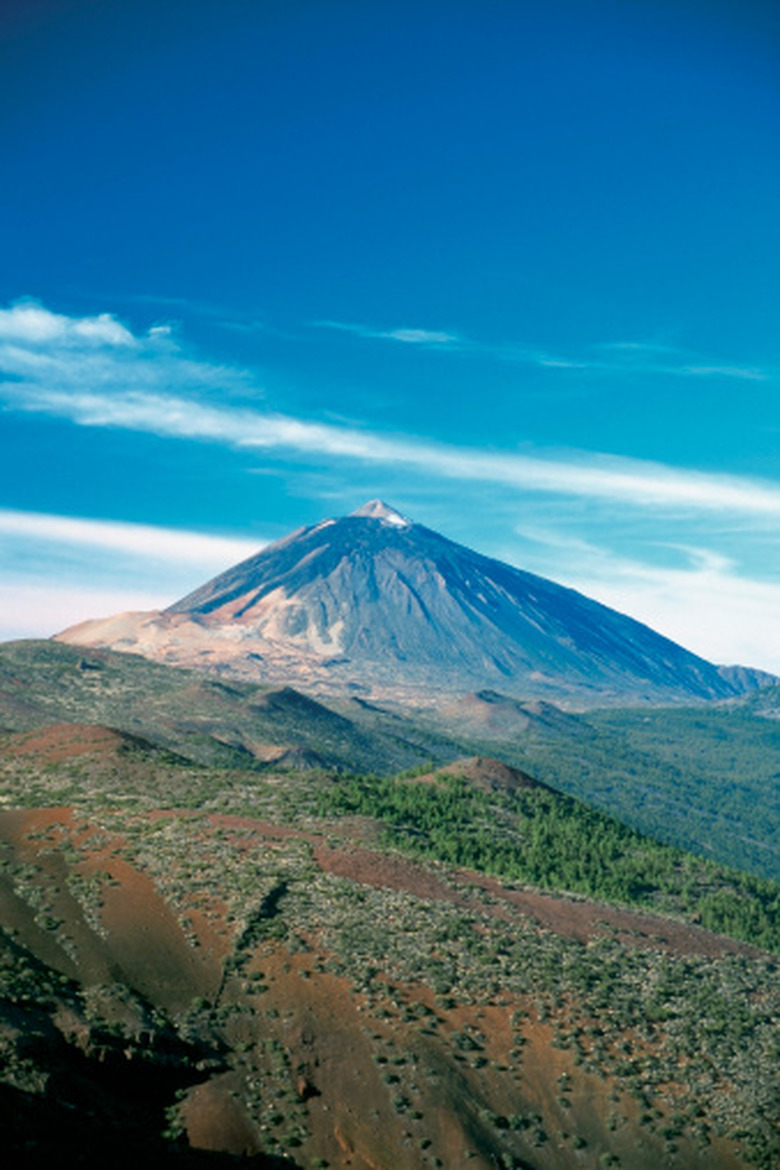Scientific Method For Volcano Science Projects
Model volcanoes have been a standby of science fair projects for many students. The displacement of gas that is formed from the reaction has to go somewhere, typically out the opening to the environment. The scientific method gives scientists a form to follow when asking questions about an observation they make. The scientific method guides students through a thinking process in an attempt to explain what happens to a volcano during an explosion.
Observation
Observation
The first step in the scientific process is to make an observation about an event. A question typically arises from the process that needs to be answered. The question can be as simple as "Why does the eruption come out the top of the volcano?"
Hypothesis
Hypothesis
A hypothesis is an educated guess or prediction based upon past knowledge of other events. In a volcano project, a hypothesis may try to explain why a volcano erupts. This idea will be supported or discounted in the experimental phase of the scientific process. A well-formed hypothesis is one that can be measured either qualitatively or quantitatively.
Experimental Process
Experimental Process
The next step is to design an experiment that mimics the conditions of the actual event. In the case of a volcano, the experiment is making a small controlled explosion. An explosion is basically a rapid expansion of gas in a specific amount of space. A mixture of baking soda and vinegar can give a rapid production of gas in a small area to result in an eruption. This step should also include the procedure for how the experiment will be carried out.
Conclusions
Conclusions
From the experimental process, the student should be able to draw conclusions about how an eruption occurs and the properties of an explosion. Rapid gas formation builds up and fills the reaction vessel and will come out of the weakest point. Since there should be an opening at the top of the volcano, the gas will come from this point.
Testing the Hypothesis
Testing the Hypothesis
After the conclusion has been made, the hypothesis should be evaluated. If the hypothesis does not match the experimental data, then a new hypothesis should be made and tested. Scientists are continually changing and making new hypotheses based on ongoing research.
Cite This Article
MLA
Youngker, Andrew. "Scientific Method For Volcano Science Projects" sciencing.com, https://www.sciencing.com/scientific-method-volcano-science-projects-8010784/. 24 April 2017.
APA
Youngker, Andrew. (2017, April 24). Scientific Method For Volcano Science Projects. sciencing.com. Retrieved from https://www.sciencing.com/scientific-method-volcano-science-projects-8010784/
Chicago
Youngker, Andrew. Scientific Method For Volcano Science Projects last modified August 30, 2022. https://www.sciencing.com/scientific-method-volcano-science-projects-8010784/
